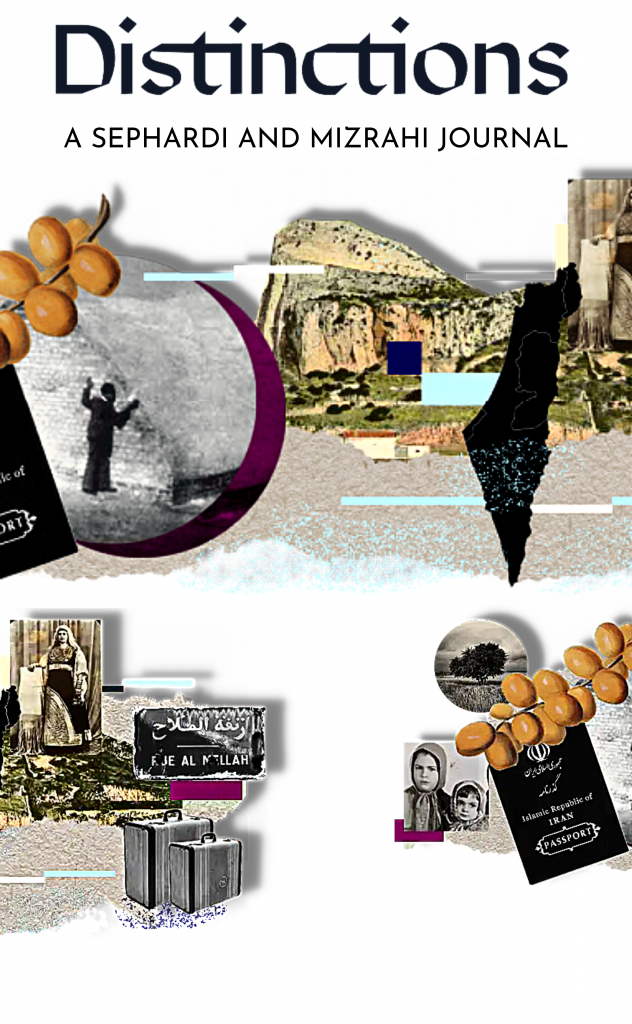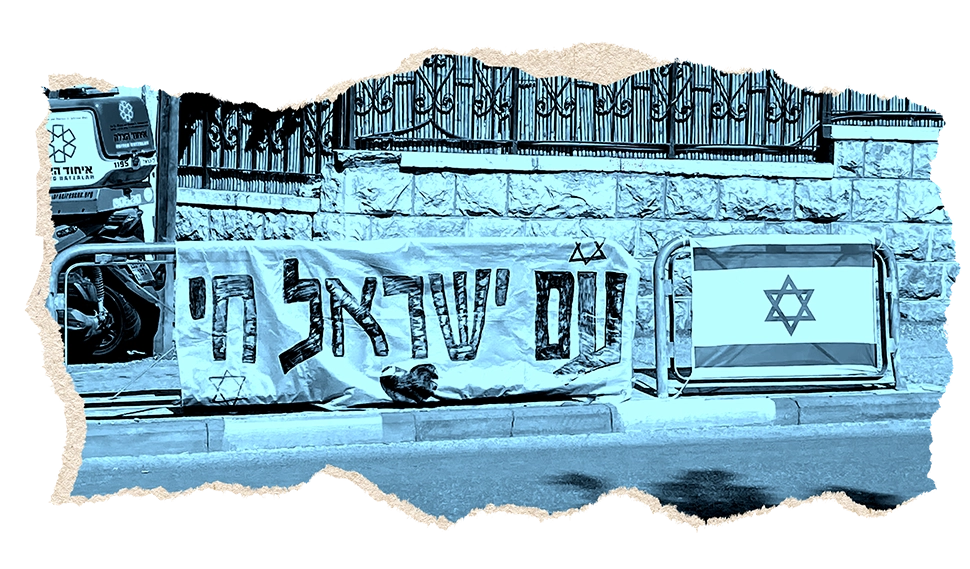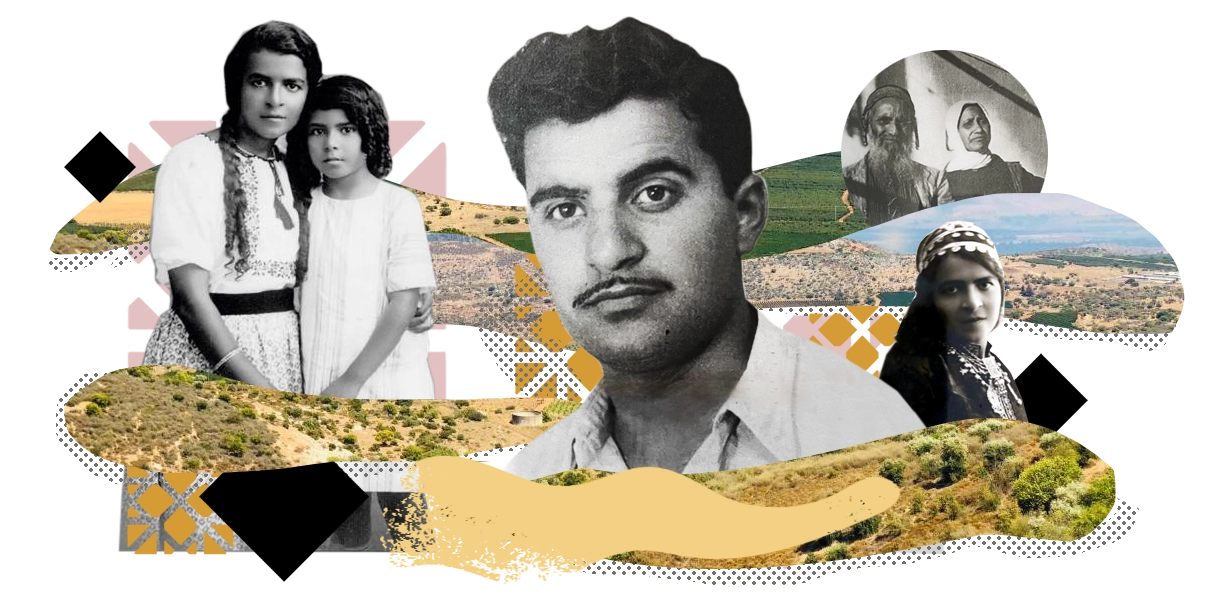Aliyah: A Love Story
Aliyah: A Love StoryThe romance with her fiancé spurred her initial move to Israel, never imagining the love affair she eventually would have with the country.
I'm thrilled to share my essay published in the lastest issue of Distinctions. The essay was written in August before this horrific war. An additional shorter essay was written after the break out of the October War here in Israel to reflect these current dark days we're all living through.
After completing my third year in Carleton University's Journalism program, with one left to go, a friend encouraged me to spend a year in Israel based on his own positive experience as a Canadian on a Tel Aviv University year-abroad program. He insisted that not only was Israel nothing like the country in my father's memories, but that he had "found a place where everybody looked like me."
As a half-Mizrahi, half-Ashkenazi Jew myself, the idea was intriguing. In Ottawa, I passed for anything and everything, asked daily if I was Italian, Greek, Lebanese, Iranian, or Pakistani. I was tired of my perpetual outsider status.
The beginning of the next school year found me in Haifa and later on a kibbutz where I met my future Johannesburg-born husband. Our relationship continued even after I returned to Ottawa to finish my degree and soon, he visited me on his first trip to Canada on a tourist visa. This was during the tail end of the Apartheid era when it was not easy for South Africans to travel. In immigration lines at the airport, he was asked to step aside and forced to endure interrogation. It was not much easier for me to spend extended time with him in South Africa, as the government there forbade me to work in my professional field: journalism. Publicity of any kind about the goings-on in South Africa, it turns out, wasn't what they were looking for.
Our long-distance relationship endured and eventually we got engaged. We planned to live in Toronto and had tossed around the idea of moving to Israel "when we could afford it" so that neither one of us would feel like the guest in the other's country. But we couldn't have spent more than a few minutes discussing it — until one day when my telephone rang and my not-yet husband was sobbing on the other line, almost unable to speak.
"My visa was rejected," he stammered. "They're suspicious and they're not letting me back in Canada." As I was barred from working, South Africa effectively was closed to me. And now Canada was closed to him.
"Start the aliyah process," I said. My future husband was taken aback.
"Aliyah?" he responded. He didn't speak Hebrew, know anyone in Israel or come from a Zionist family.
"They'll pay for your flight," I said. "See you in a few months." Four months later, Israel let both of us in — something we had learned not to take for granted.
While my initial journey to Israel defied expected narratives, my story since being here aligns with a more profound theme — unity. My international identity — Yemenite father who grew up in Jerusalem, Canadian mother from an Ashkenazi family, South African husband, Israeli children and their Sephardi spouses — represents a celebration of diverse experiences that shape who I am and who I aspire to be. These are experiences I only could have had by making aliyah some 30 years ago.
Today, I teach college students in Israel, my classes often comprising Sephardi, Ashkenazi and Ethiopian students from all corners of the country. When I share my mixed background with them, a palpable sense of ease ensues. This especially becomes evident when discussing their parents' and grandparents' aliyah stories, family recipes, vacations, and holiday customs. The exchange of perspectives and sharing of stories in my classroom affirms the significance of embracing our unique identities. Each semester, I witness firsthand how my varied background fosters meaningful connections with students, creating a space where they can freely learn.
The teaching experience has been only one of many instances in which I've recognized the beauty of my international mosaic at work. As I continue to navigate my path in Israel, I carry the classroom lesson with me as a reminder that my identity isn't just a collection of origins; it's a catalyst for making us who we are. Unity flourishes when people are given a platform to share their narratives and contribute to a greater understanding.
Similar feelings emerged when my daughter introduced her half-Moroccan, half-Argentinian fiancé; my son brought home his half-Yemenite, half-Turkish bride; and another daughter married into a family of South African new immigrants. Israel's dynamic environment fosters my own growing family's sense of belonging.
Though I still don't fit into one slot, there is an element of an Israeli essence that has slowly become an inseparable part of me — this sense of belonging, which has allowed me to create a personal history with the land. It's a connection I've rekindled and passed on to my Israel-born children, who are sharing that connection with my father in ways I never could.
I have learned that the beauty of life lies not in fitting into one slot, something I yearned for in my youth, but in celebrating the mosaic of experiences that make us who we are and who we are yet to become.
Gila Green is an author, editor, EFL (English as a Foreign Language) lecturer, and mother of five children. Her novels often feature characters with Yemenite and Sephardic backgrounds as she strives to broaden the scope of Jewish literature. Her fifth novel, With A Good Eye is forthcoming with AOS Publishing Montreal (2024). Pre Order With A Good Eye Now.
When you subscribe to the blog, we will send you an e-mail when there are new updates on the site so you wouldn't miss them.




Comments